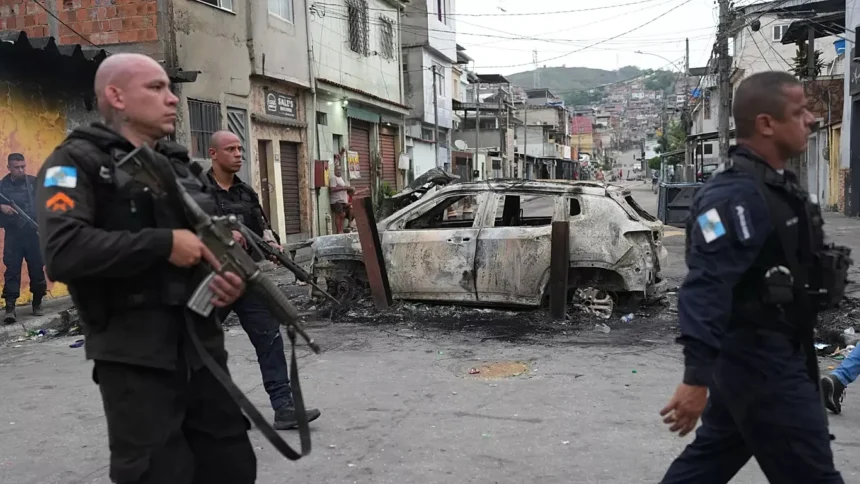A massive police operation against the notorious Red Command drug gang in Rio de Janeiro turned deadly on Tuesday, leaving at least 60 suspected criminals and four police officers dead, authorities reported. Human rights organizations have condemned the raid and are calling for independent investigations into the fatalities.
The operation, one of the largest and most violent in Brazil’s recent history, involved helicopters, armored vehicles, and ground units, targeting the favelas of Complexo do Alemão and Penha. Police arrested 81 suspects and seized 93 rifles and more than half a ton of drugs, including over 200 kg of cocaine. Officials stated that those killed “resisted police action.”
Rio Governor Claudio Castro described the raid as the city’s largest-ever operation against organized crime. Civil police confirmed the deaths of four officers, vowing that the “cowardly attacks by criminals against our agents will not go unpunished.” Social media footage showed fire and smoke rising from the favelas as gunfire erupted.
According to Luis Flavio Sapori, sociologist and public safety expert, while police raids are a standard tactic, the scale of Tuesday’s operation is unprecedented. “What’s different about today’s operation is the magnitude of the victims. These are war numbers,” he said, cautioning that such operations often fail to apprehend gang leaders, instead targeting lower-level members.
The Red Command gang, which has expanded its influence in Rio’s favelas, is primarily involved in trafficking hard drugs. Suspected gang members responded by blocking roads with at least 70 commandeered buses, causing significant disruption in northern and southeastern Rio.
Human rights organizations have strongly criticized the operation. The United Nations human rights office expressed horror at the scale of violence and called for effective investigations, emphasizing authorities’ obligations under international law. César Muñoz, director of Human Rights Watch Brazil, described the incident as “a huge tragedy” and demanded the public prosecutor’s office clarify the circumstances of each death.
The police raid disrupted daily life, with 46 schools closed in the affected areas and the Federal University of Rio de Janeiro suspending night classes and advising people on campus to seek shelter.
Rio has a long history of lethal police operations. Past incidents include 29 deaths in Baixada Fluminense in March 2005 and 28 deaths in Jacarezinho in May 2021, highlighting ongoing tensions between law enforcement and organized crime in the city.







